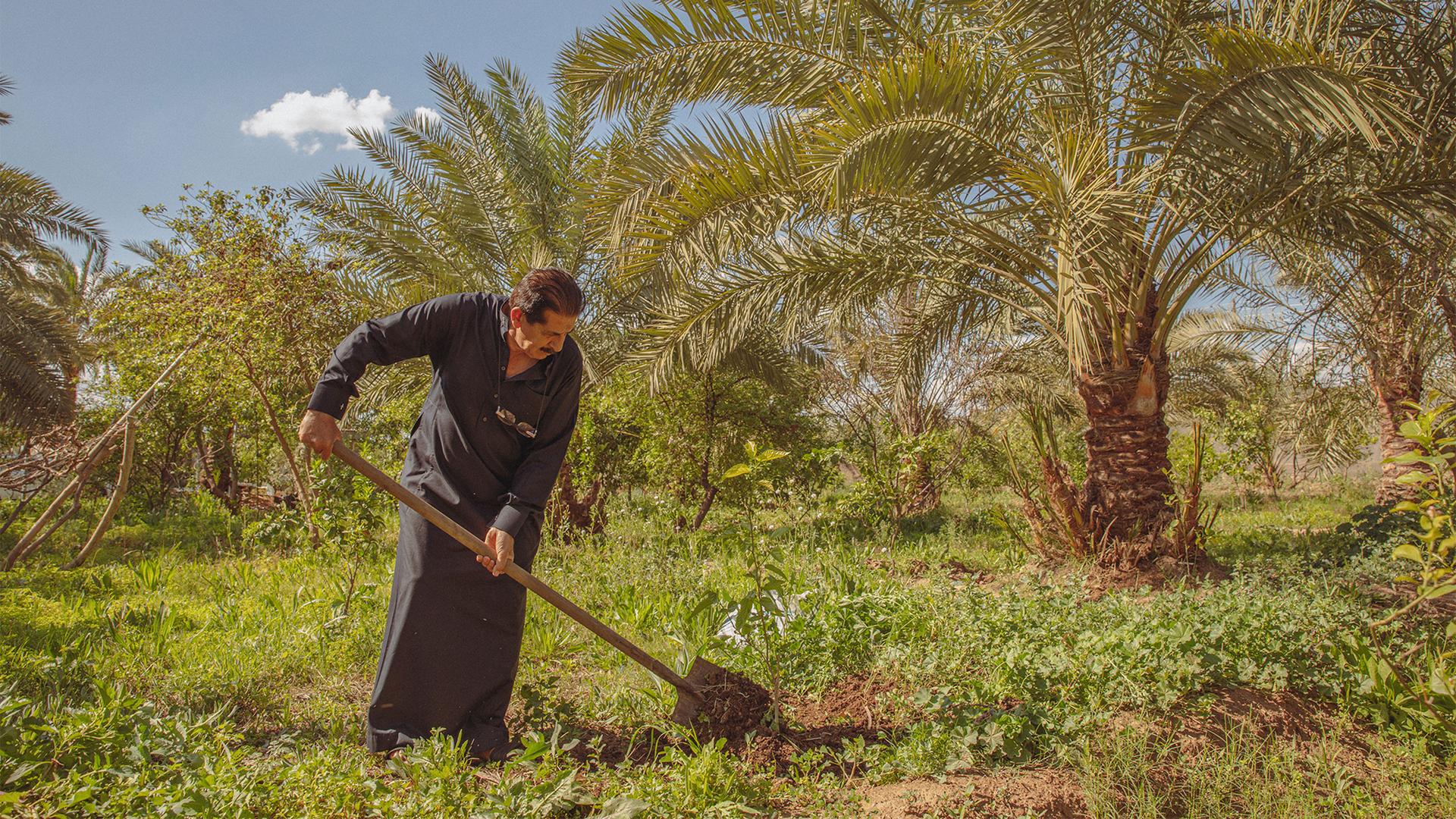On a bright spring day, Ayyad Mohmmed Ali stood at the edge of his farm, facing a row of about a dozen new construction sites nearby. A river separated his farm and the buildings.
“It’s really painful to see this,” he said. “In Iraq, we don’t like to build vertically and now, you’re seeing all these lands being turned into buildings.”
Mohmmed Ali has planted date palm trees and vegetables at his boostan, which is Arabic for grove, for the past three decades.
This green bit of land is his sanctuary, he explained. It’s where he comes to escape the noise and pollution of the capital Baghdad, a city of roughly 8 million people.
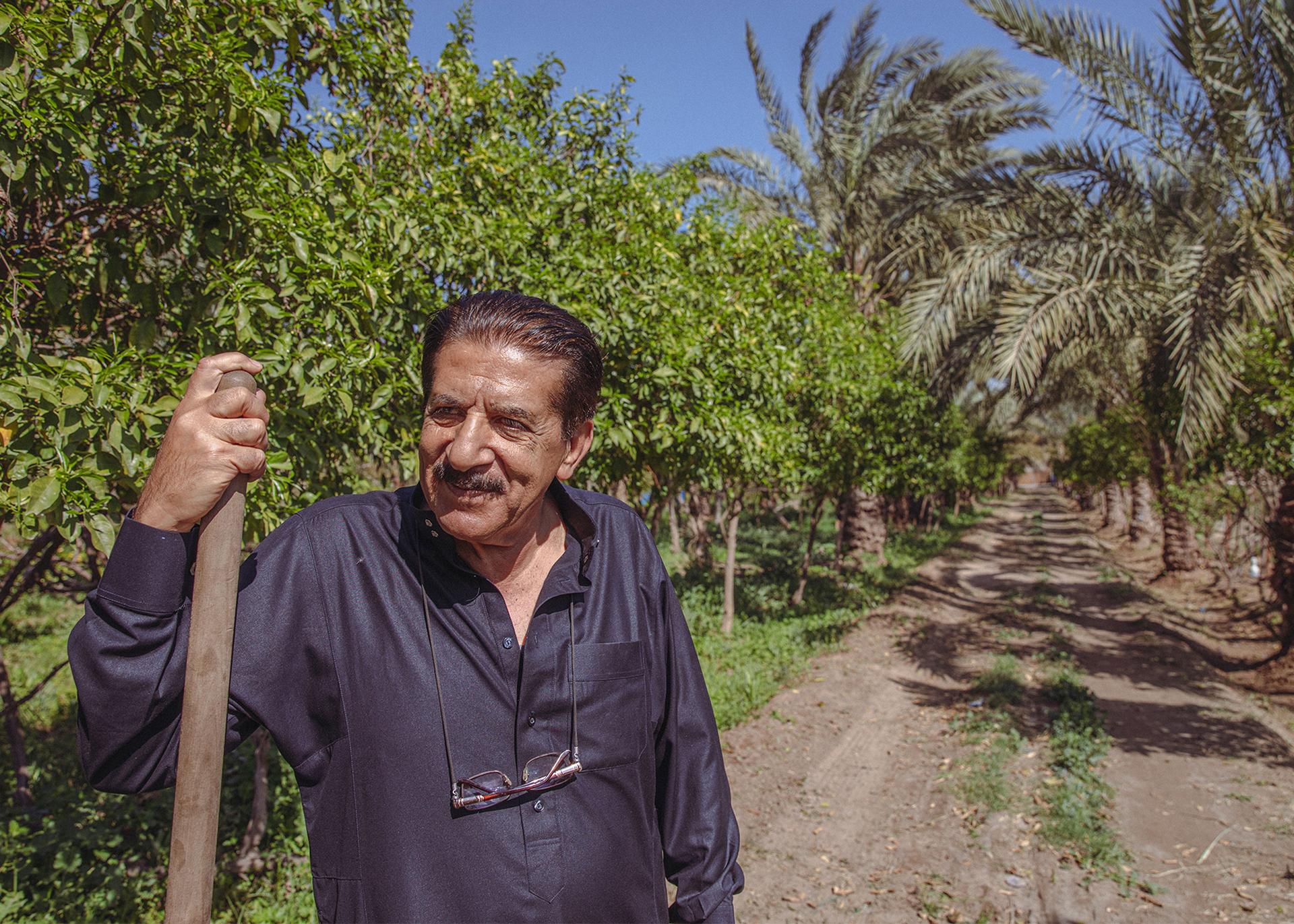
In the early 1980s, Iraq had an estimated 30 million palm trees. It used to be among the top producers of dates in the world. But war, construction and the impact of climate change have taken a toll. By 2009, there were fewer than 9 million date palms left in the country.
“This is like the hair of the Iraqi desert and we’re watching the Iraqi landscape go bald with the stresses of war,”
“This is like the hair of the Iraqi desert and we’re watching the Iraqi landscape go bald with the stresses of war,” said Kali Rubaii, who teaches anthropology at Purdue University, and has researched the environmental impacts of war in Iraq.
As part of her research, Rubaii interviewed date farmers who were displaced after the US invasion of Iraq in 2003 and she said the lack of date farming told a story of dispossession.
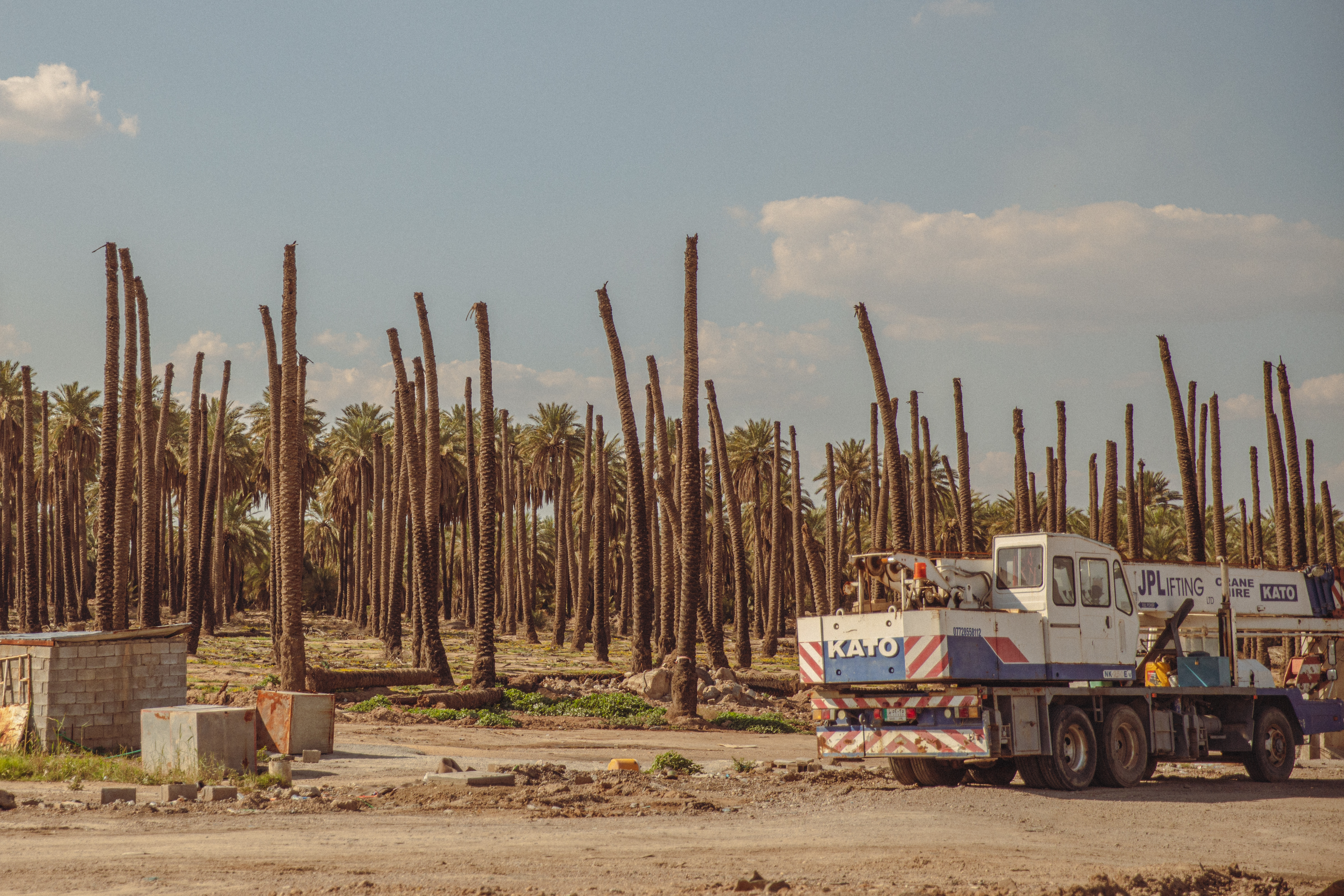
Palm trees need consistent care: watering, pruning and fertilizing. And when farmers had to leave, the trees suffered.
“So many people are forced to sell their land for very cheap and, oftentimes, farmers have found themselves working on land that they used to own,” Rubaii explained.
Iraq has also been getting hotter and drier. According to the UN, it is the fifth-most vulnerable country to the impacts of climate change.
“There’s a section of the southern part of Baghdad, if you drive through, you can see a lot of trees that look like they’ve been decapitated,” Rubaii added, “because sometimes when trees die, they keel over or, if they’re not surviving, sometimes they get cut from the top.”
Making matters worse is Iraq’s construction boom — especially in bigger cities like Baghdad. It means that more farmers are choosing to cut down palm trees entirely to make way for building projects.
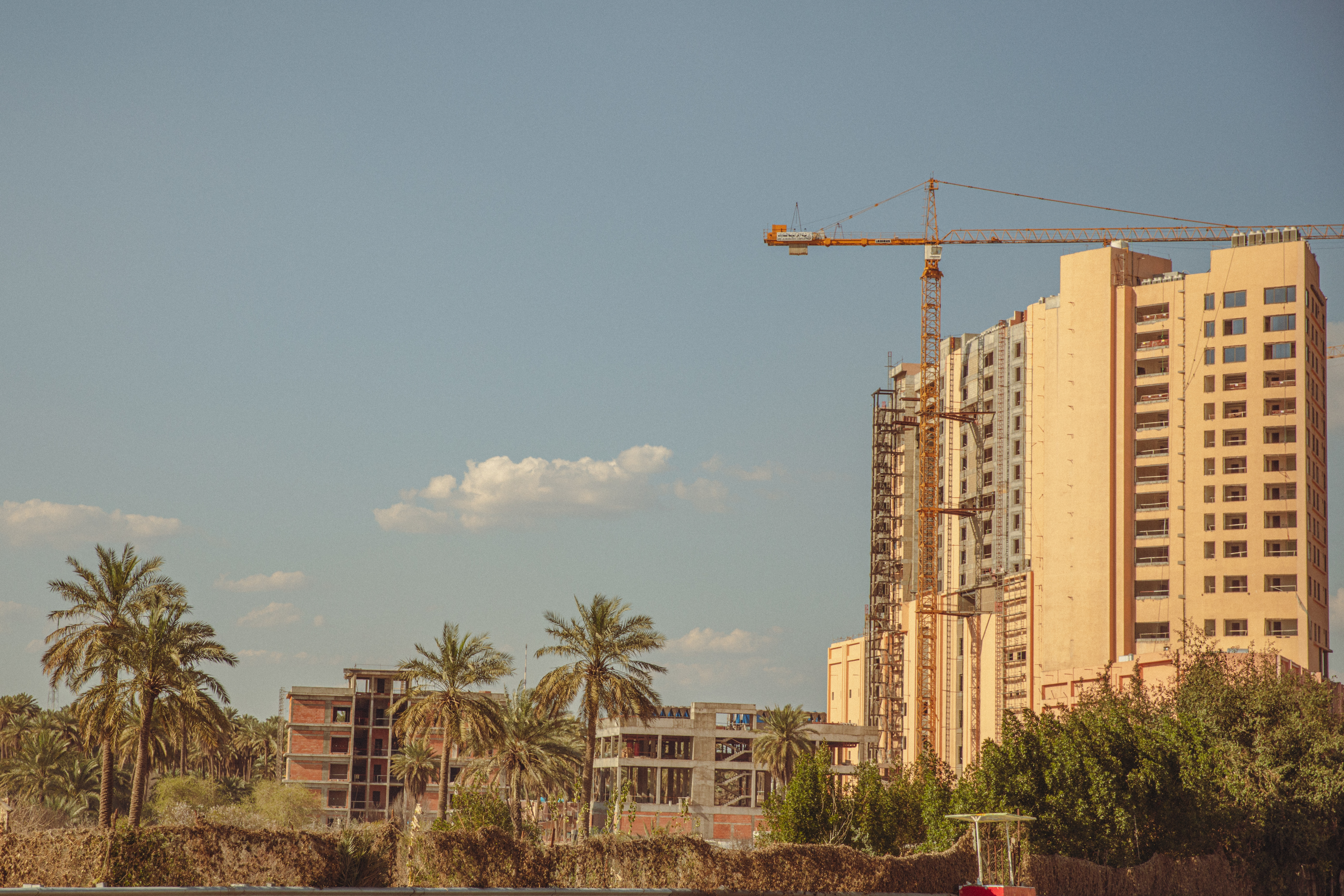
“The farms have a problem,” explained Labeeb Kashif al-Gitta, “there is no water, there is no commercial income from this farm, so I cut the palm trees and I build buildings instead and get more profits.”
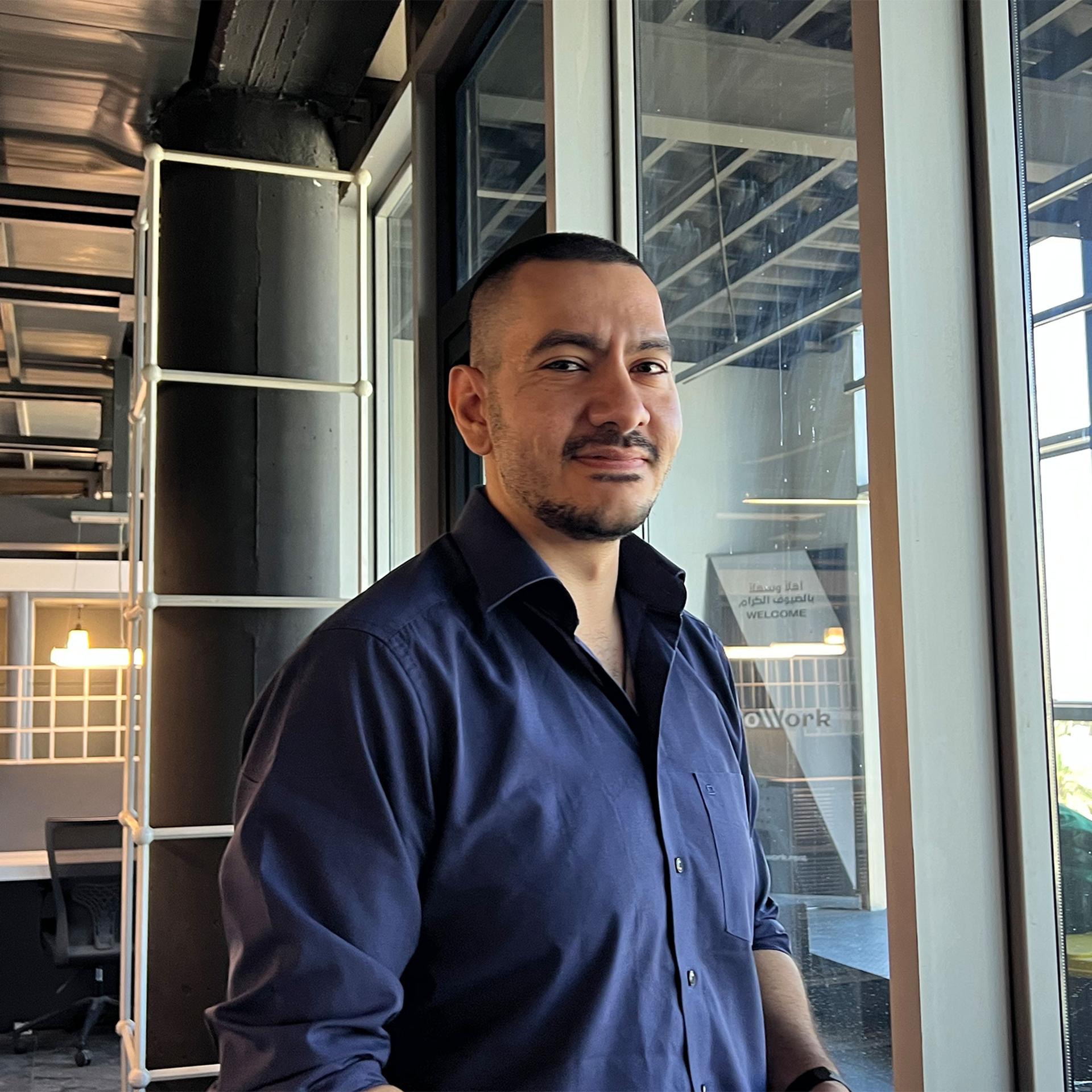
And the concept was this: homeowners with palm trees on their land could sign a contract with Nakhla to have the company take care of the trees.
Many times, Gitta said, people just cut down the trees because they are too much work to maintain.
“Palm trees, for them, is [a] very heavy project. They need to take care of it four times per year,” he said.
Nakhla’s team waters, prunes, fertilizes and vaccinates palm trees — to protect them from things like fungus.
Come harvest time, Nakhla either packages and hands over the dates to the tree owner or takes the product to market, depending on the type of contract.
These types of services are not common in Iraq, but Gitta said the company is growing.
It is expanding its client base and recently signed a contract with the municipality of Baghdad to take care of the city’s many palm trees.
“Last year, in houses, we had 300 palm trees, in farms, we had 1,000 palm trees, and in the street, we had 6,000,” Gitta explained.
The Iraqi government is also funding reforestation projects.
But biologist Ayyad Wajeh al-Shahwany explained that to truly bring back Iraq’s palm trees, a lot more needs to be done.
Private projects like Nakhla and others are good, he said, but they need more support from the government and international organizations.
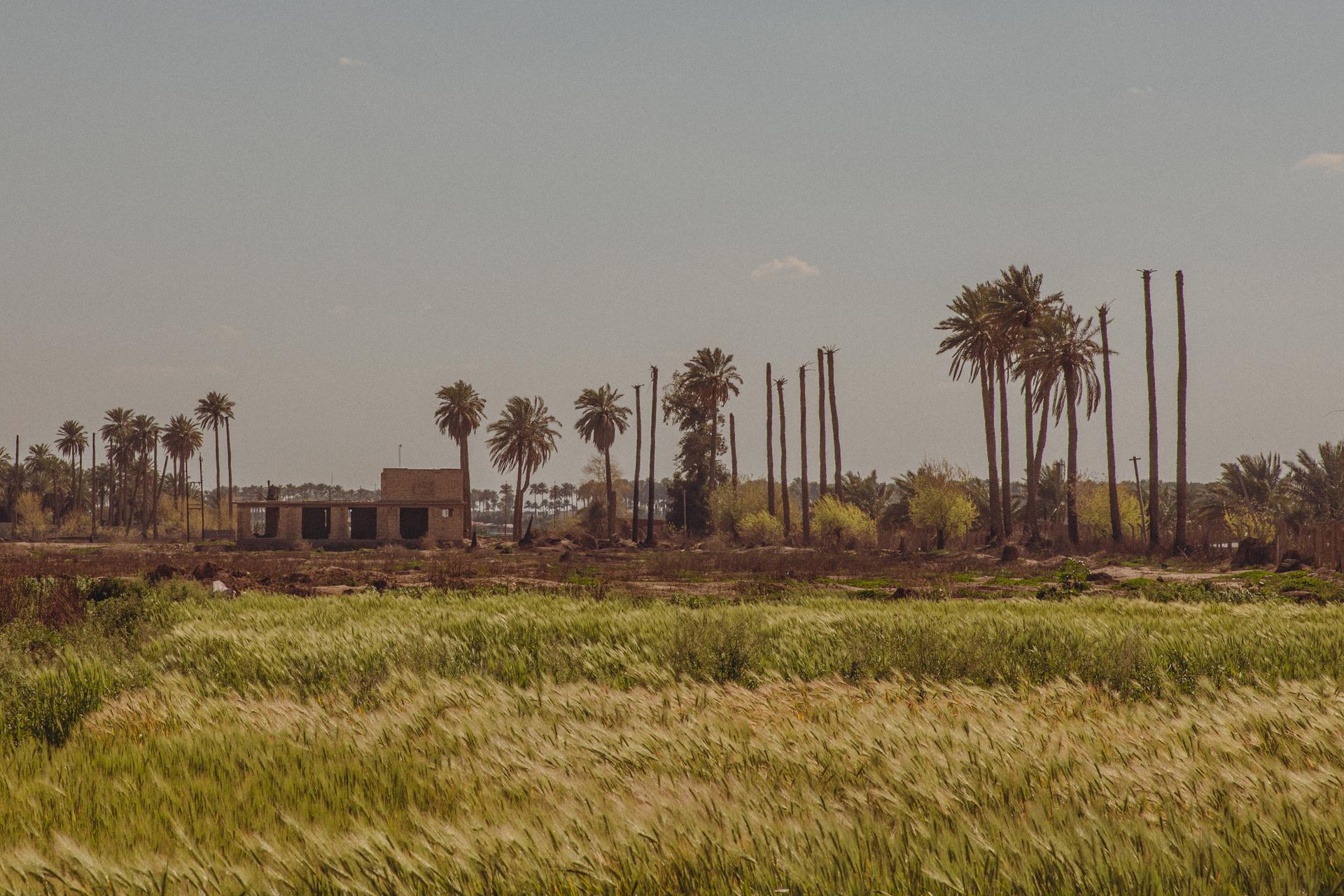
Kali Rubaii, from Purdue, said that many Iraqis see the value in helping to save the country’s iconic palm trees.
“People are stubborn and they are not going to stop. They are finding different grassroots tactics to keep their trees alive and also to keep the date economy alive, and maybe even grow it back.”
Iraqi date palms are incredibly resistant plants, she added. They can cope with all kinds of environmental stress, like storms, wind and drought.
They just need a little help to thrive.
Related: ‘It’s a mass ecological crisis’: Extreme weather in Iraq hits those already struggling the hardest
